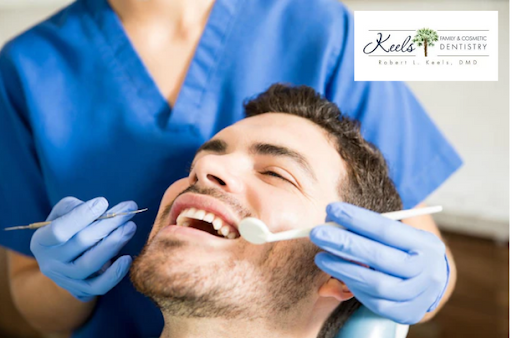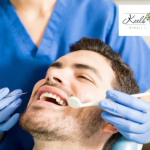Oral piercings, or "oral piercings," are a type of ear piercing that involves the placement of one or more small metal objects in the mouth. Oral piercings are typically used in body modification and can be categorized as either surface piercings or subdermal piercings.
Oral piercing procedures, including healing times and aftercare, vary depending on the type of oral piercing performed, so it is important to consult with a piercer for their recommendations regarding an individual's specific body modifications.
For those of you who are wondering about the impact that oral piercings have on your oral health, here are 3 ways to think about the impact that oral piercings can have on your oral health.
Increased Risk of Infection
If you are getting a piercing in your gums or near them, there is an increased risk of infection. This is because the skin in that area may not be clean and piercing puts extra pressure on this damaged skin, making it more vulnerable to infections.
Oral piercings can create an entry point for bacteria and other microorganisms to enter the body, leading to infection.
Damage to the Gums & Teeth
Oral piercings can cause damage to the teeth and gums, leading to tooth decay, gum recession, and even tooth loss.
Piercing through gum tissue can cause damage to the gums and bone. This can lead to bleeding and inflammation of the gums in that area, which can make it difficult for you to brush or floss properly.
When a tooth is pierced, there's a risk of tooth loss around where the piercing was done due to blood pooling and swelling. This also increases the risk of a tooth fracture because the pressure on your tooth is increased
Nerve Damage
Oral piercings can also cause nerve damage when the piercing is placed too close to a nerve. When the piercing is placed too close to a nerve, it can cause the nerve to become compressed, which can lead to numbness, tingling, and pain.
Sometimes, your speech, chewing, and movements may be interrupted when you get your oral piercing. The changes might not go away for some time and it might always feel a little off.
You've seen, there are a lot of nerves all over your mouth and face! If your piercer accidentally hits one of these nerves, it can cause temporary numbness or even long-term nerve damage, which can permanently affect your taste as well.
In some cases, the nerve can become permanently damaged, leading to permanent numbness or paralysis. Additionally, the piercing can cause infection, which can lead to further nerve damage.
Care & Maintenance for Oral Piercings
The harmful effects of oral piercings are not extensive, but they can cause significant oral health problems if the pierced person does not take care of themselves properly.
It is important for people considering an oral piercing to be aware of the potential complications that can result from permanent body modifications that impact their ability to eat, sleep, and function normally.
Individuals should also be aware of how to avoid these complications as well as how best to care for their piercings. Before undergoing any type of procedure that could impact their ability to eat and sleep, individuals should first consult with their dentist or physician.
If a person is under the age of 18, they should also talk to their parents about the possibility of undergoing any kind of permanent body modification. Individuals who have undergone an oral piercing can take proper care of it themselves by following these guidelines:
- Avoid sleeping on your back because this position causes the tongue to move in and out more often, which can lead to increased surface area contact with the jewelry and therefore increased risk for infection.
- Avoid biting on your lip while wearing a mouthpiece as this can cause bruising that makes it difficult for food to pass through the mouthpiece and can lead to an infection.
- Rinse your mouthpiece with saline after each use, at least once a day, to reduce the risk of bacteria building up on it.
- Avoid using harsh chemicals or alcohol-based mouthwash because they can dry out your skin and make you more prone to infection.
Who Shouldn't Get a Tongue Piercing?
Tongue piercings are a popular trend among teenagers and young adults, but some people should not get one. Some people should not get a tongue piercing because of the risk of infection or bleeding.
Additionally, people with certain medical conditions, such as diabetes, should not get a tongue piercing, as it can increase the risk of infection. People with allergies to certain metals should also avoid getting a tongue piercing.
Finally, people who are prone to excessive bleeding or have a weakened immune system should not get a tongue piercing.
Top 3 Ways to Make Sure Your Oral Piercing Doesn't Harm Your Body
The most common oral piercing procedure is tongue piercing. It's a popular choice among young people and those who don't want to wear earrings. But it can cause serious problems if you're not careful. Here are three ways to make sure your oral piercing doesn't harm your body.
1. Choose a reputable piercer: Make sure to research the piercer you choose and ensure they are experienced and certified.
2. Follow aftercare instructions: Follow the aftercare instructions provided by your piercer to ensure proper healing and reduce the risk of infection.
3. Avoid oral contact: Avoid oral contact with your piercing for at least two weeks after the piercing to reduce the risk of infection.
Get free dental care guidance from our free oral health guide today!
If you're a person who's considering oral piercings, you should know that they can affect your oral health in three ways. Talk to us at Keels Family & Cosmetic Dentistry about your oral concerns!





























